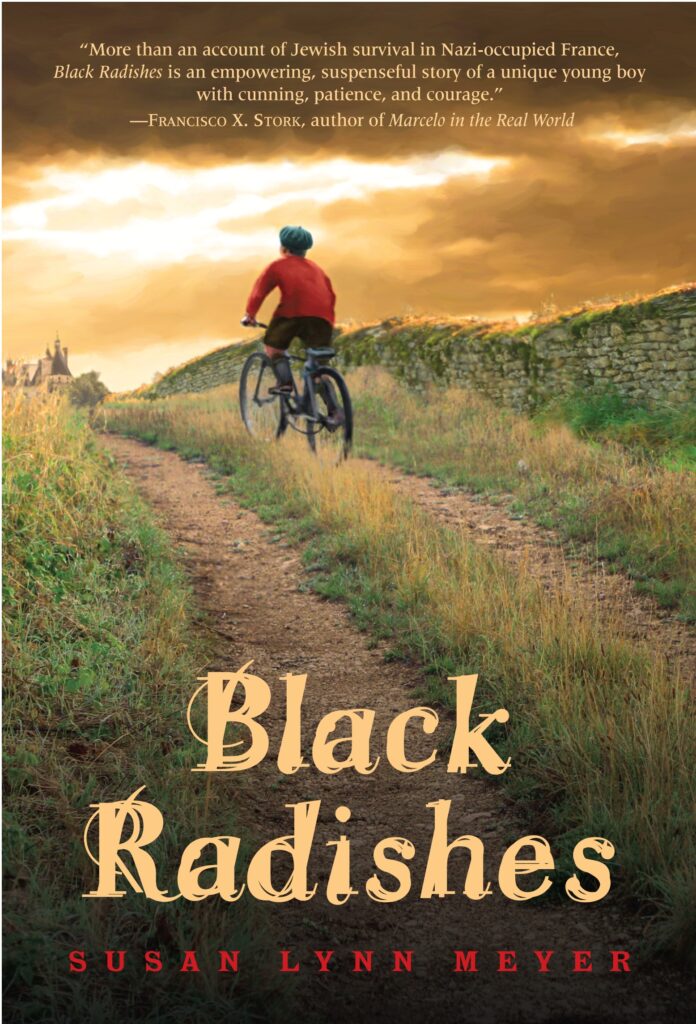Black Radishes

Especially for Teachers:
It is March of 1940. The French believe that their army can protect them from Nazi Germany. But is Paris a safe place for Jews? Gustave’s parents don’t think so. Forced to leave behind his best friend, the mischievous Marcel, and his cousin Jean-Paul, Gustave moves with his mother and father to Saint-Georges, a small village in the countryside.
During April and May, Nazi Germany invades one country after another. In June, the French army is defeated, and Paris is occupied. Saint-Georges is still part of the free zone, but the situation there is becoming increasingly precarious.
Then Gustave meets Nicole, a Catholic girl who works for the French Resistance. Along with her father, Nicole tries to find a way to smuggle Jean-Paul, Marcel, and their families into Free France so that they can all escape to America. It is Gustave, however, who comes up with a plan that just might work. But going into Occupied France is a risky thing to do when you are Jewish.
Inspired by her father’s experiences as a Jewish child living in France during World War II, Susan Lynn Meyer tells the story of a family’s day-to-day struggles in a country that may not be able to keep its promise of “Liberty, Equality, and Fraternity.

Chenonceau, this French castle built across the river Cher, plays an important role in BLACK RADISHES.
Honors:
- Sydney Taylor Honor Award
- A Bank Street College of Education Best Children’s Book
- A Boston Author’s Club Highly Recommended Book
- A Massachusetts Book Award Must-Read Finalist
- A Pennsylvania School Librarians Association Young Adult Top 40 book
- Shortlisted for the Rebecca Caudill Young Readers Award
Especially for Teachers:
Reviews for Black Radishes
“This debut novel, loosely based on the author’s father’s experiences . . . raises important questions about nationalism, equality and identity and fills a void in Holocaust literature for this age group. [A] fictionalized family account of the Holocaust from a rarely told perspective.” —Kirkus Reviews
“This story of the plight of Jews in France from 1940 to 1942 develops into a dramatic tale of courage and determination. . . . Meyer shines light on the bravery of Resistance fighters, and her story gradually crescendos into a gripping read comparable to Marilyn Sachs’s classic A Pocket Full of Seeds.” —School Library Journal
“An excellent recent novel that can introduce readers to a wider world. . . . Meyer builds the tension by using real-life events (detailed in an author’s note) and creates in Gustave a very believable boy who behaves bravely when he must.” —Roger Sutton, The Horn Book
“Partly based on Meyer’s father’s experiences, the story derives its credibility from the vivid details of daily life and the depiction of changes slowly taking place within Gustave, who balances the occasional cruelty he endures with the friendship and trust he sometimes finds. The novel’s tension builds slowly, reaching its crescendo when Gustave masters his fears in the face of mortal danger. This fine first novel could be read in conjunction with The Good Liar.” —Booklist
